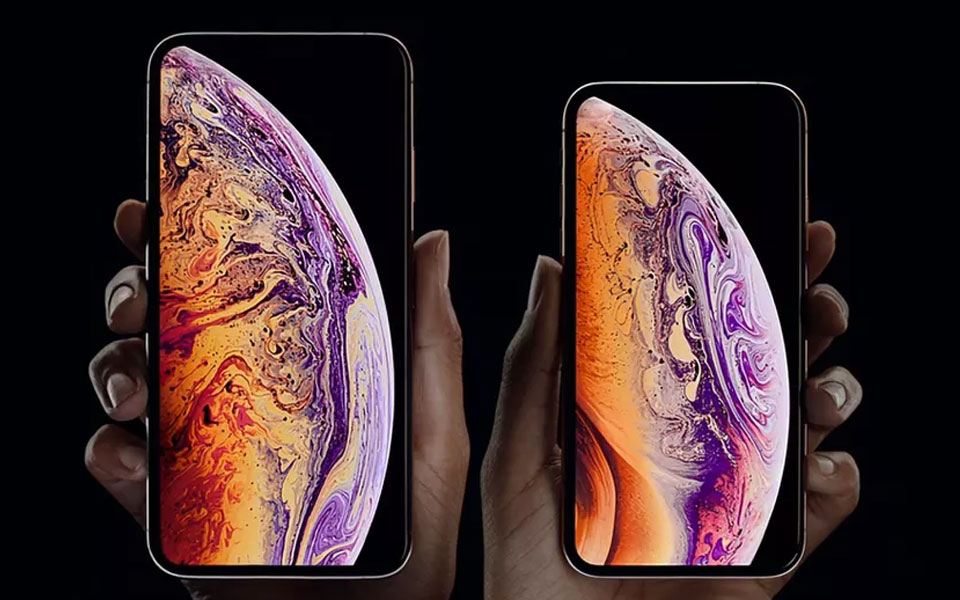San Francisco, Sep 13 : Apple officially introduced its 2018 line-up of iPhones -- the premium iPhone XS, iPhone XS Max and iPhone XR at an event in California late on Wednesday.
The iPhone XS and iPhone XS Max will support dual SIM and dual standby functionality.
The premium iPhone XS and XS Max come with upgraded 12MP + 12MP camera and 2x optical zoom. There is an improved TrueTone quad-LED flash as well. Both the models have a 7MP RGB camera sensor in the front with F/2.2 aperture while the iPhone XR has a single 12MP camera at the rear.
The iPhone XS and iPhone XS Max would be available in 64GB, 256GB and 512GB storage variants in space grey, silver and a new gold colour starting at Rs 99,900 and Rs 1,09,900, respectively through Apple authorised resellers in India.
The cheapest of the lot -- the iPhone XR -- has a starting price of Rs 76,900.
The premium iPhone XS is made with stainless surgical grade steel with a new glass formulation and has edge-to-edge screen, Apple said in a statement.
Both the iPhone XS and XS Max are fueled by Apple's latest A12 Bionic chipset built on 7-nm design, which allows for 6.9 billion transistors on the chip. Also, there is a new neural engine with an 8-core dedicated machine learning (ML) processor.
The iPhone X comes with a 5.8-inch OLED display while the iPhone XS has 6.5-inch OLED screen -- the biggest ever on an iPhone. Other than the size, both the models have 3D Touch and HDR.
The Face ID in these models is said to work faster this time than last year's iPhone X. The affordable iPhone XR has a 6.1-inch LCD screen with liquid Retina display and aluminium body instead of a steel one.
The Cupertino-based company also unveiled its new Apple Watch Series 4 with improved health features. Its next generation of Apple Watch features edge-to-edge display with smaller bezels, which is 30 per cent bigger.
The device brings a design overhaul to the Apple Watch as the iPhone-maker is now using a new dual-core 64-bit chipset, custom designed to improve performance.
"Apple Watch isn't just the number one smart watch, it is the number one watch in the world period," Tim Cook, CEO of Apple said. Apart from heartbeat data, the devices would now also track heart rhythm and notify users.
The new series has been approved by FDA for ECG recording as well but this feature would be limited to only US-based users initially. The tech giant said it is working to introduce this feature in other countries as well.
Let the Truth be known. If you read VB and like VB, please be a VB Supporter and Help us deliver the Truth to one and all.
Kalaburagi: Four men have been arrested in Kalaburagi on charge of hacking a man with lethal weapons and pelting stones at him under the limits of Station Bazaar Police Station recently.
According to police sources, Anand Jalak Shinde (34), Ashitosh Jalak Shinde (30), Imran Mehboob Sheikh (28) and Sohaib Anwar Qureshi have been arrested. The men are accused of the brutal murder of Syed Mehboob, a resident of Station Bazaar Upper Line Hamalawadi in the city.
An FIR was filed by the Station Bazaar Police Station based on a complaint given by Syed Ismail, father of the deceased Syed Mehboob.
Following quick probe, the police team successfully arrested the suspects within 24 hours. The arrested men were produced in court and have been sent to judicial custody.
The City Police Commissionerate has appreciated in an official release the police team’s quick solving of the murder case and arrest of the four men accused of murdering Syed Mehboob.





